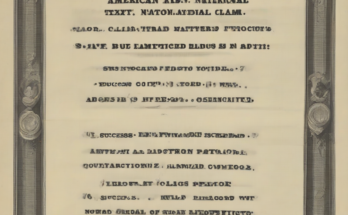Donate Your Car in New York: A Comprehensive Guide to Options and Benefits
Are you looking to get rid of your old car? Perhaps you’ve upgraded to a newer model or your vehicle is no longer roadworthy. Whatever the reason, donating your car in New York can be a rewarding way to give back to your community while also benefiting from tax deductions and other advantages. This comprehensive guide will explore the various options available, the benefits of donating your car, and the essential steps involved.
Understanding Car Donation in New York
Donating a car in New York is a straightforward process involving transferring ownership to a registered charity or non-profit organization. These organizations use the proceeds from selling donated vehicles to fund their operations, programs, and services.
Who Can Benefit from Your Donation?
- Animal Shelters and Rescue Organizations: Donate to help provide care and shelter for animals in need.
- Environmental Organizations: Support initiatives for conservation, environmental protection, and sustainability.
- Educational Institutions: Contribute to the funding of schools, colleges, and universities.
- Medical Research and Healthcare Facilities: Help advance medical research and provide essential healthcare services.
- Veteran Support Groups: Donate to support veterans and their families.
- Religious Organizations: Contribute to the mission and activities of your chosen faith.
- Community Development Programs: Support initiatives aimed at improving the quality of life in your community.
Benefits of Donating Your Car
Donating your car in New York offers a range of benefits that go beyond simply getting rid of an unwanted vehicle:
- Tax Deductions: The IRS allows for a tax deduction for charitable vehicle donations. The amount of the deduction depends on the vehicle’s fair market value at the time of donation.
- Convenient and Easy Process: Donating your car is typically a hassle-free process. Most charities will handle the logistics of picking up your vehicle, completing the paperwork, and selling it.
- Environmental Impact: Donating your car keeps it out of landfills, reducing waste and minimizing the environmental footprint.
- Social Impact: Your donation helps fund important programs and services that benefit your community, making a positive difference in the lives of others.
- Peace of Mind: Knowing that your donation is helping a worthy cause can provide you with a sense of fulfillment and satisfaction.
Choosing the Right Charity
Selecting the right charity to receive your donation is crucial. Research potential organizations to ensure they are legitimate and align with your values. Consider factors such as:
- Mission and Values: Choose a charity whose mission and values resonate with your own.
- Transparency and Accountability: Ensure the charity is transparent in its financial practices and operations.
- Reputation and Track Record: Look for organizations with a strong reputation and a proven track record of success.
- Vehicle Acceptance Policy: Check if the charity accepts your specific vehicle make, model, and condition.
Types of Vehicles Accepted
Most charities accept a wide range of vehicles, including:
- Cars: Sedans, SUVs, trucks, minivans, and convertibles.
- Motorcycles: Road bikes, cruisers, and dirt bikes.
- Boats: Motorboats, sailboats, and jet skis.
- Recreational Vehicles (RVs): Motorhomes, travel trailers, and fifth wheels.
Donating a Car with Title Issues
If your car has title issues, such as a lien, damage, or missing documents, there are still options available:
- Contact the Charity: Reach out to the charity you’re considering to discuss the specific title issues and see if they can assist.
- Resolve the Issues: If possible, try to resolve any title issues before donating the vehicle. This will simplify the donation process and ensure a higher donation value.
- Find a Specialized Charity: Some charities specialize in accepting vehicles with title issues. They may have experience handling the legal complexities involved.
Donating a Car in New York: The Step-by-Step Process
The donation process in New York is generally straightforward:
- Choose a Charity: Select a registered charity or non-profit organization that aligns with your interests and values.
- Contact the Charity: Reach out to the chosen charity to discuss your vehicle and obtain information about their donation process.
- Provide Vehicle Information: The charity will typically ask for details about your vehicle, including the make, model, year, mileage, and condition.
- Schedule a Pick-up: The charity will arrange for a tow truck to pick up your vehicle from your location.
- Sign the Donation Documents: You will need to sign a vehicle donation form and release the title to the charity.
- Receive a Tax Receipt: The charity will provide you with a tax receipt for your records. The receipt will typically include the date of donation, the vehicle’s description, and the estimated fair market value.
Tips for Maximizing Your Donation Value
To ensure you get the most out of your car donation, follow these tips:
- Clean the Vehicle: Wash, wax, and vacuum your vehicle before donating. A well-maintained car is more appealing to potential buyers and could lead to a higher donation value.
- Gather Documentation: Prepare any relevant documents, such as the vehicle title, registration, and maintenance records.
- Contact Multiple Charities: Contact several charities to compare their donation processes and determine the best option for you.
- Ask About Additional Requirements: Inquire about any specific requirements the charity may have, such as the vehicle’s condition, title status, or insurance coverage.
Donating a Car in New York: Potential Challenges
While donating your car in New York is generally straightforward, there are a few potential challenges to be aware of:
- Vehicle Condition: Charities may not accept vehicles in poor condition, such as those with significant damage or mechanical problems. If your car is in poor condition, you might need to find a specialized charity or consider other options like scrapping or selling it for parts.
- Title Issues: If your car has title issues, such as a lien or a missing title, the donation process can be more complex. You may need to resolve these issues before donating or find a charity that specializes in handling vehicles with title problems.
- Tax Deduction: While you can claim a tax deduction for your car donation, the amount of the deduction is based on the fair market value of the vehicle. It’s important to keep detailed records and documentation to support your tax deduction.
Alternatives to Car Donation
If donating your car isn’t the right fit for you, consider these alternative options:
- Sell Your Car: Sell your car privately or through a dealership. This option allows you to receive the full market value of the vehicle but may involve more time and effort.
- Scrap Your Car: If your car is no longer roadworthy and has little resale value, you can scrap it for parts or metal. This is the most environmentally friendly option but you won’t receive any financial compensation.
- Trade-In: Trade your car in when purchasing a new vehicle. This is a convenient option but the dealership will likely offer a lower trade-in value than you might get by selling it privately.
Conclusion
Donating your car in New York can be a rewarding and tax-advantaged way to make a positive impact. By choosing a reputable charity, understanding the donation process, and preparing your vehicle, you can ensure a smooth and successful donation experience. Whether you’re looking to help animals, support education, or contribute to environmental causes, donating your car can make a real difference in the lives of others.



